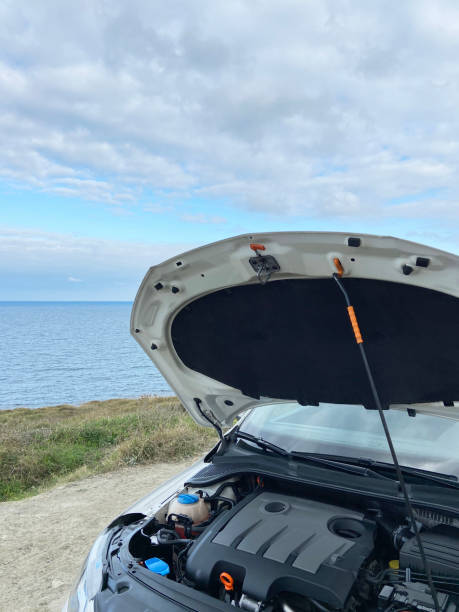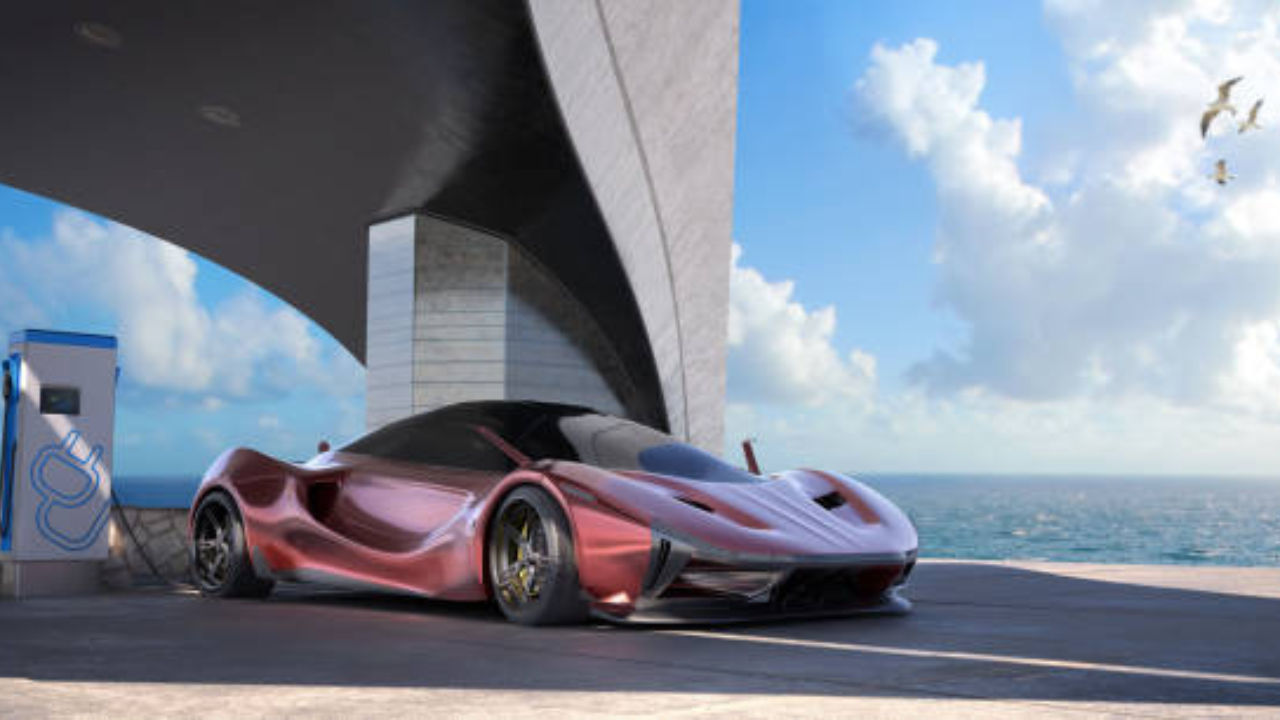Yes, can you use a marine battery in a car if it fits and meets the vehicle’s voltage requirements. The battery must also provide adequate cranking amps for the car’s engine.
Marine batteries are designed to handle deep discharges and the harsh conditions of a maritime environment. Opting to use one in your car can be an exciting choice, especially if you require a robust and durable power source.
Car enthusiasts and individuals with vehicles that demand high electrical loads might find marine batteries appealing due to their resilience.https://www.idesktech.com/weize-lithium-battery/
These batteries typically offer a combination of starting power and the ability to tolerate repeated draining and recharging cycles. Matching the correct type of marine battery—often a dual-purpose or starting battery—with your car’s specifications is crucial for optimal performance and safety.
Always ensure that the physical size, terminal type, and power capacity align with what your vehicle can handle before making the switch.

Credit: www.mdpi.com
Marine Battery Composition
Many wonder if they can power their car with a marine battery. Let’s explore the makeup of marine batteries to better understand their use. There are several types of marine batteries, each designed to withstand harsh conditions at sea.
Types Of Marine Batteries
Car batteries and marine batteries are not the same in their design and purpose. They handle deep discharges and have a sturdier build. Here are the main types:
- Starting Batteries: Deliver quick, powerful bursts to start engines.
- Deep Cycle Batteries: Provide steady energy over extended periods.
- Dual-Purpose Batteries: Combine the strengths of both starting and deep cycle batteries.
Unique Characteristics
Marine batteries boast features that make them fit for watercraft. These characteristics include:
| Feature | Benefit |
|---|---|
| Vibration Resistance | Handles waves and movement. |
| Corrosion Resistance | Stands up to saltwater environments. |
| Heavier Plates | Supports frequent charging and discharging cycles. |
Durability and stability are core to marine batteries, ensuring they can serve a boat effectively.
Car Battery Specifications
Car Battery Specifications are crucial when considering a replacement. These specs make sure your car is in good working order and safely. Understanding the specs prepares you for making an informed choice, whether it’s a marine or car battery.
Design And Functionality
- Car batteries power vehicle electronics.
- They supply energy for starting the engine.
- Marine batteries resist vibrations.
- They handle deep discharges better.
Standard Automotive Requirements
| Voltage | 12 Volts |
|---|---|
| Cold Cranking Amps (CCA) | Varies by vehicle |
| Reserve Capacity (RC) | Measured in minutes |
| Dimensions | Must fit in battery tray |
| Terminals | Compatible with car cables |
| Maintenance Needs | Low maintenance required |
Compatibility Factors
Swapping out a marine battery for a car battery might seem easy. But it’s not that simple. To ensure a perfect fit, consider these vital factors.
Voltage And Capacity Comparisons
For a battery swap, match the voltage and capacity. A car typically requires a 12-volt battery. Marine batteries, also 12 volts, may differ in capacity. Match these to avoid power issues.
| Vehicle Type | Voltage | Capacity (Ah) |
|---|---|---|
| Marine | 12V | Varies |
| Car | 12V | 45-70Ah |
Always check the vehicle’s requirements against the marine battery’s specs.
Terminal Position And Size
Terminal details matter for a proper connection. Marine and car batteries often differ here. Observe these features:
- Terminal position: Must align with your car’s cables.
- Terminal size: Ensure compatibility with car’s connectors.
Use a compatible battery to prevent dangerous misconnections.
Pros And Cons
Exploring the use of marine batteries in cars can be quite intriguing. There are pros and cons. Let’s take a deeper look.
Advantages Of Marine Batteries In Cars
- Enhanced Durability: Marine batteries resist vibration. This means they last longer in harsh car environments.
- Dual Purpose: They can start engines and power accessories. This dual capability is great for cars with extra electronics.
- Improved Resistance: They are built to withstand extreme weather. Your car will benefit from this feature.
Potential Drawbacks And Limitations
Using marine batteries isn’t always smooth sailing. Consider these points.
| Drawbacks | Details |
|---|---|
| Size and Fit: | They may not fit all car battery trays. Check measurements before buying. |
| Charging Issues: | Car alternators may not fully charge them. This could shorten battery life. |
| Weight: | Marine batteries are heavier. This extra weight can affect car performance. |
Safety And Longevity Concerns
Substituting a marine battery for a traditional car battery may seem like a viable quick fix. Yet, it’s not that simple. Understanding the potential risks and impact on your vehicle’s health is crucial before making such a decision.
Risk Assessment
When considering a marine battery for a car, assess the risks. Marine batteries are built for different purposes. Their construction differs from car batteries. This mismatch can pose safety hazards. Important risks to consider include:
- Electrical system compatibility
- Risk of battery leakage or failure
- Potential for incorrect charging levels
- Overheating dangers
Unsuitable power outputs can lead to electrical system malfunction. This can potentially harm both the car and its occupants.
Impact On Vehicle And Battery Lifespan
Choosing a marine battery for a vehicle affects longevity. Vehicles have specific power requirements. Using a marine battery can lead to:
| Aspect | Impact |
|---|---|
| Charge Cycles | Reduced efficiency due to varied charge cycle design |
| Vehicle Electronics | Potential damage from inconsistent power supply |
| Battery Lifespan | Shortened due to improper use and charging |
Long-term use of a marine battery in a car often results in more costs and frequent replacements. Battery mismatch can strain the vehicle’s electrical system. This leads to longevity issues for both vehicle and battery.
Legal And Warranty Implications
When exploring the idea of driving a car with a marine battery, it’s crucial to consider the legal and warranty implications. Understanding these aspects ensures you stay on the right side of the law and maintain your vehicle’s warranties. Let’s delve into the specifics regarding manufacturer’s warranties and insurance, as well as the legalities of using a marine battery on the road.
Manufacturer’s Warranty And Insurance
Manufacturer’s warranties often have strict guidelines on vehicle parts. When you use a marine battery, here’s what might happen:
- Voids warranty: Battery-related issues may not be covered.
- No compensation: Damage from battery failure may go uncompensated.
- Inspection: Dealers may inspect for non-approved parts.
| Part | Impact on Warranty | Insurance Coverage |
|---|---|---|
| Marine Battery | Potential Void | May Not Cover Damages |
In terms of insurance, unapproved modifications like a marine battery might affect claims:
- Claims rejection: Insurance might reject specific claims.
- Possible premium increase: Could lead to higher insurance costs.
Road Legalities
When considering road legalities, there are few points to remember:
- Cars must meet certain standards.
- Regulations vary by region and state.
- Marine batteries might not comply with these standards.
It’s smart to check with local motoring authorities about using marine batteries. This prevents legal issues while driving.

Marine Battery Vs Car Battery
Marine batteries and car batteries serve different purposes and are designed to meet the specific needs of their respective applications. Here are some key distinctions between automobile and marine batteries:
- Design and Construction:
- Marine Battery: The purpose of marine batteries is to supply a consistent power supply for boats and other marine vehicles. They are built to withstand the harsh conditions of marine environments, including vibrations and constant movement. Marine batteries are often constructed with thicker plates and are more durable to handle the challenges of boating.
- Car Battery: Car batteries, on the other hand, are designed for the starting and charging needs of vehicles on land. They are typically constructed with thinner plates and are optimized to deliver a burst of energy to start the engine.
- Types of Marine Batteries:
- Starting Batteries: Similar to car batteries, these provide a burst of power to start the engine.
- Deep Cycle Batteries: Designed to deliver consistent, low-level power for a prolonged amount of time, making them suitable for powering accessories on boats.
- Usage:
- Marine Battery: Used for both starting the engine and powering various electronic equipment on boats, such as fish finders, navigation systems, and lights.
- Car Battery: Primarily used for starting the vehicle’s engine.
- Reserve Capacity:
- Marine Battery: Often has a higher reserve capacity to provide power for accessories when the engine is off.
- Car Battery: Emphasizes a high cranking amperage to start the engine effectively.
- Charging:
- Marine Battery: Designed to handle deeper discharges and can be charged and discharged more frequently.
- Car Battery: Typically not designed for deep discharges and may experience reduced lifespan if frequently deeply discharged.
- Maintenance:
- Marine Battery: Some marine batteries are designed to be maintenance-free, while others may require periodic maintenance.
- Car Battery: Many car batteries are maintenance-free and sealed, requiring minimal attention.
In summary, while both marine batteries and car batteries store and provide electrical energy, their design and construction are tailored to the specific demands of their intended applications—marine batteries for the challenges of boating and car batteries for the starting and charging needs of land vehicles.
Frequently Asked Questions For Can You Use A Marine Battery In A Car
What Happens When You Use A Marine Battery In A Car?
Using a marine battery in a car can work, as both are 12-volt batteries. However, marine batteries are designed for deep cycles and may not provide optimal cranking amps for a car’s starting needs, potentially affecting performance and longevity.
Is It Ok To Use A Deep Cycle Battery In A Car?
Yes, you can utilize a car’s deep-cycle battery. Still, it may not provide optimal cranking performance for engine starting compared to a standard car battery.
Will A Car Alternator Charge A Marine Battery?
Yes, a car alternator can charge a marine battery. Ensure the alternator’s output matches the battery’s specifications for safe and effective charging.
Is There A Difference Between A Marine Battery And A Car Battery?
Yes, marine batteries and car batteries differ in design and functionality. Marine batteries are built to withstand deep discharges and harsh marine environments, automobile batteries, which are designed for high initial cranking power and regular, short discharges.
Conclusion
To sum up, while a marine battery can power your car, suitability depends on specific requirements and emergency conditions. It’s essential to prioritize compatibility and safety above all else. For the best performance, choose the right battery for your vehicle.
Always consult with a professional before making such a switch to ensure a safe and effective solution.

I am a technology Specialized writer and blogger based in the USA & UK. I have four years of experience in Technology, Social Media and all types of Battery’s like Solar Battery,Car Battery,Lithium Battery etc. So I work on solving these issues and give various tips on these issues.
